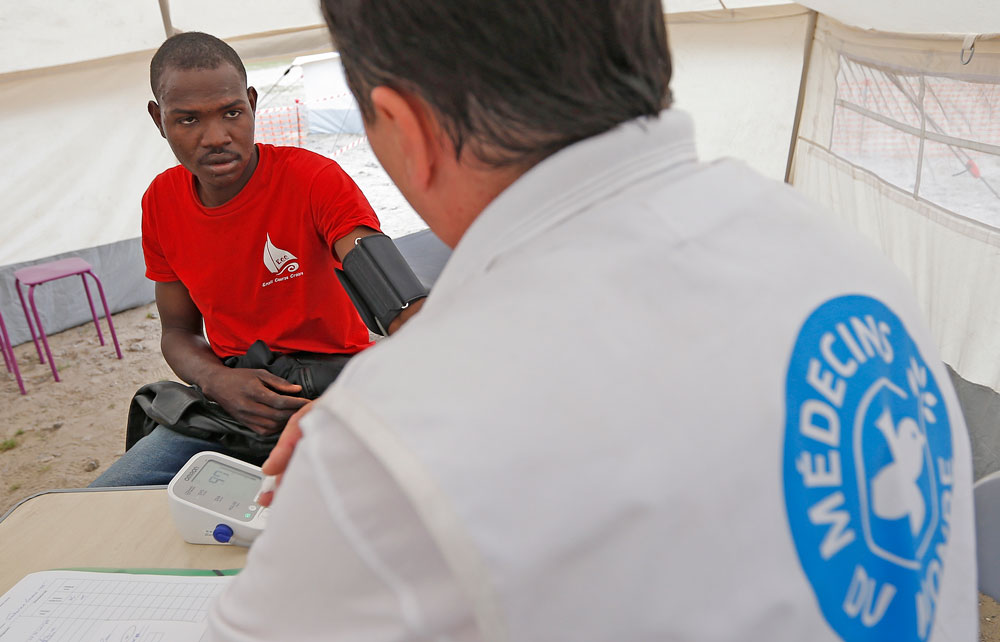
Estimated at 20.3 billion euros by the end of 2020, the encouragement of the “solidarity” savings, the investments invested by the French in the social economy and solidarity (ESS), are still a taste of water in the ocean of financial wealth of households *. As far as the urgency of the ecological transition is concerned, these investments must accelerate, and accelerate rapidly.
To better promote it to the general public, the FAIR ** association, representing the social impact finance sector, proposes to support the popularity of Livrets A and LDDS by strengthening its orientation towards solidarity-based economy .
Extend the solidarity donation to Livret A
This strengthening could take place through the extension of the solidarity donation to Livret A, suggests the collective. The device that allowed the holders of an LDDS from October 1, 2020, to make a donation (on its deposited capital or interests) to an ACE actor without passing on its current account, would be an excellent lever for the promotion of social finance, while 55 million French have a Book A, more than double that for LDDS (24 million).
FAIR suggests, moreover, that a more important part of the deposits in regular savings books be dedicated to the financing of the ESS and to the ecological impact. This share has been fixed since June 2021 at 5% of “non-centralized” deposits (the share of encouragement preserved in the balance sheet of banks), and this contributes to the reduction of energy or climatic jobs to 10%.
“The statistical premiums shown are that the financing of the businesses of the ESS is already 16%explains the President of FAIR, Frédéric Tiberghien. We therefore think that the legal percentage should be progressively relevant from the end of the year, just like the one on the financing of ecological and energy transitions – today it has an additional 10% according to the Bank of France », pursuit-il.
35.5 billion euros of credit in 2020
According to its latest annual report on regulated savings, in December 2020, loans to social economy and solidarity-based enterprises were estimated at 35.5 billion euros (for € 202.8 billion). not centralized in 2020, representing 40.5% of the total call for books). These credits were mainly granted to the education and services sectors (43.5%), and to a lesser extent to commerce, car repairs (16.2%) and real estate activities (11.7%). .
Concerning the credits granted for the financing of projects contributing to the energy transition or the reduction of the climate empire, € 169 billion were earmarked for the financing of housing corresponding to the RT2012 standard, and € 3.8 billion were for the eco-PTZ , reports the Banque de France.
The FAIR Association’s recommendations are written in the context of a draft proposal formulated with the intention of the presidential candidates aimed at promoting solidarity-based savings to the general public and institutional investors.
European label
Gather in a white book consultable online, these proposals serve four priorities: better finance companies with strong social utility, develop financial innovations, establish a European definition of solidarity-based finance and create the European equivalent of the Finansol label, and « accompany the transformation of finance in the service of social and ecological transitions ».
On this last point, in addition to the development of the solidarity-based savings scheme, FAIR defends the establishment of a conversion fund for the social and solidarity economy (constituted by public and private support) to facilitate the conversion of private companies to the ESE through loans, investment and / or participation in own funds – as well as the implementation of new accounting standards that integrate extra-financial information, a proposal also defended by a recent report d ‘experts sur long-term savings development.
FAIR’s previous proposals were partly echoed in Emmanuel Macron’s mandate. Three of its recommendations have been published in the last five years: the transformation of the Book of Sustainable Development (LDD) into the Book of Sustainable Development and Solidarity (LDDS) (earlier in the 2017 election), as part of the Law Pact, Wage Savings Reform (principal source of funding for the ESS) and Emergency Life Insurance (all of them) life insurance contracts doivent propose at least a UC labeled financially, a UC ISR and a UC “green” since January 1, 2022).
* 5.870 billion euros broken by the end of June 2021, source Banque de France.
** Ex-Finansol, renamed FAIR in 2021, following its merger with Impact Invest Lab.
Start investing your money in cryptocurrencies and get Free Bitcoin when you buy or sell 100$ or more if you register in Coinbase

